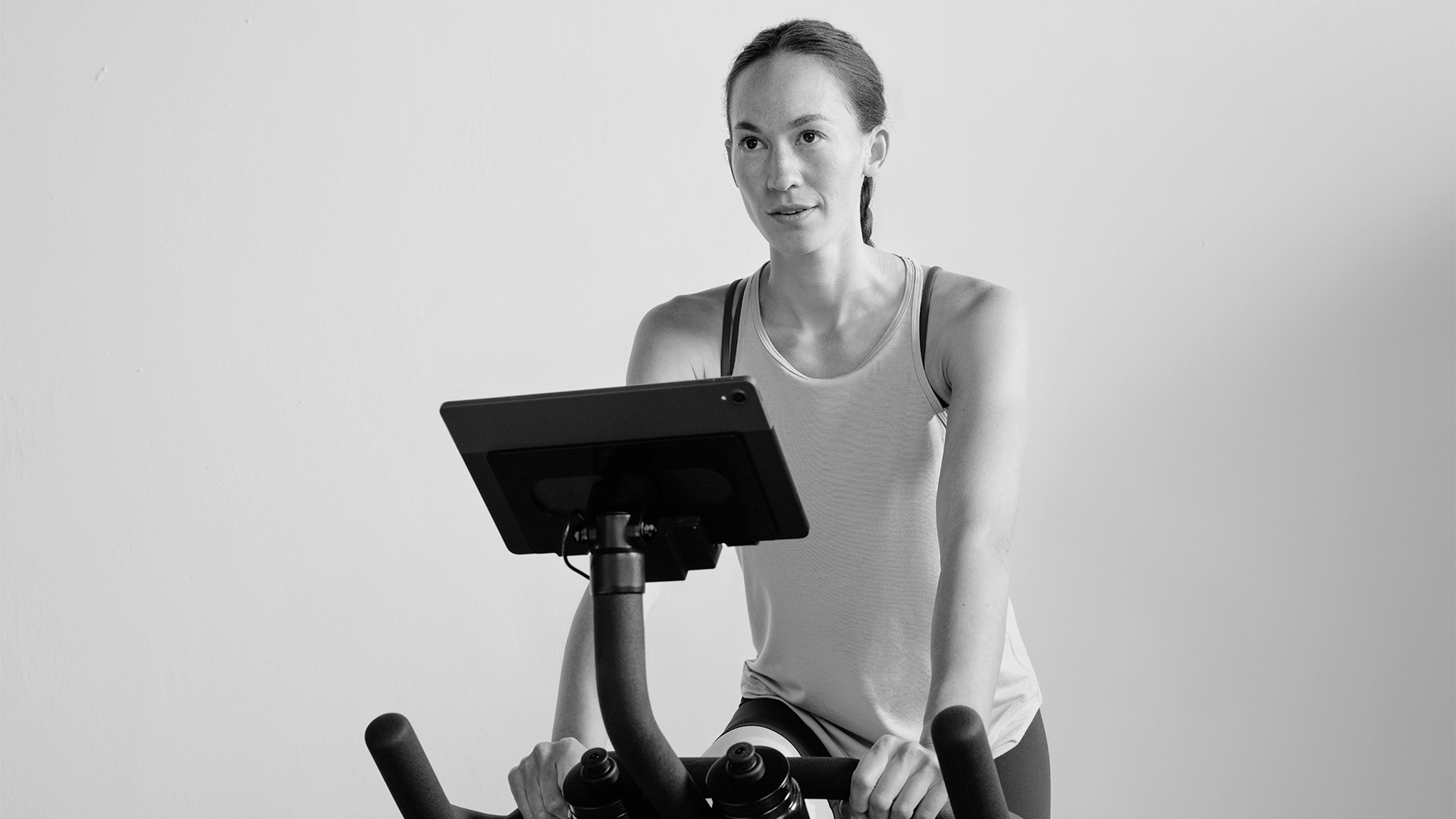Cycling offers numerous health benefits for cardiovascular fitness, immune system function, and mental well-being for both men and women. In addition to these general advantages, women can experience specific benefits from regular cycling. Incorporating just a few weekly sessions of indoor cycling can make a significant difference in enhancing women’s health and overall well-being.
Though similar, both kinds of cardio equipment differ in the type of exercise they offer as well as in their respective pros and cons.
Here’s everything you need to know about an elliptical vs. stationary exercise bike when it comes to cardio training, so that you can decide which exercise machine is right for you.
Effect of cycling on the female body
Cycling is an effective low-impact exercise to reduce weight. Moderate cycling can burn around 300 calories per hour, but by increasing intensity, you can turn your workout into a more efficient fat-burning session. Opting for a HIIT workout will bring you the desired weight-loss results much faster.
Although cycling predominantly works the quadriceps, hip flexors, and glutes, its effect isn’t limited to only shaping your legs. This is a whole-body transformative exercise that reduces body fat and tones muscles head-to-toe, from your shoulders and arms, to the lower back and stomach, buttocks, thighs, calves, and feet.
Due to hormonal differences, females typically experience a longer duration to achieve weight loss and muscle growth compared to males. As a result, women may need to increase their training intensity or dedicate more hours per week to achieve similar changes within their desired timeframe, aligning with the progress seen by men. At the same time, it is often women who have limited time for sports because of work and family responsibilities.
Reduced Exertion HIIT (REHIT) is the best choice for women pressed for time. CAROL Bike’s signature workout packs the benefits of high-intensity training into just a 5-minute training session. While you work at your maximum capacity during the 2×20-second sprints, your body enters fight or flight mode and burns significantly more body fat. Research by Western University Colorado shows you’ll burn more calories on a 15-minute CAROL Bike ride, than a 30-minute run. This happens due to increased excess post-exercise oxygen consumption (EPOC) meaning that you will burn double the calories after the training than during the workout.
CAROL Bike’s REHIT program reduced the cyclists’ risk of type 2 diabetes by 62% after 8 weeks of training—the same as people who take Metformin. Obesity is related to insulin levels and increases the risk of type 2 diabetes. Although this medical condition is more common in males rather than females, females often have more serious complications and a greater risk of death. At the end of the study, blood pressure was lowered by 5%, fat level in the blood decreased by 10%, good cholesterol (HDL) increased by 6%—and blood sugar was down by 2%.
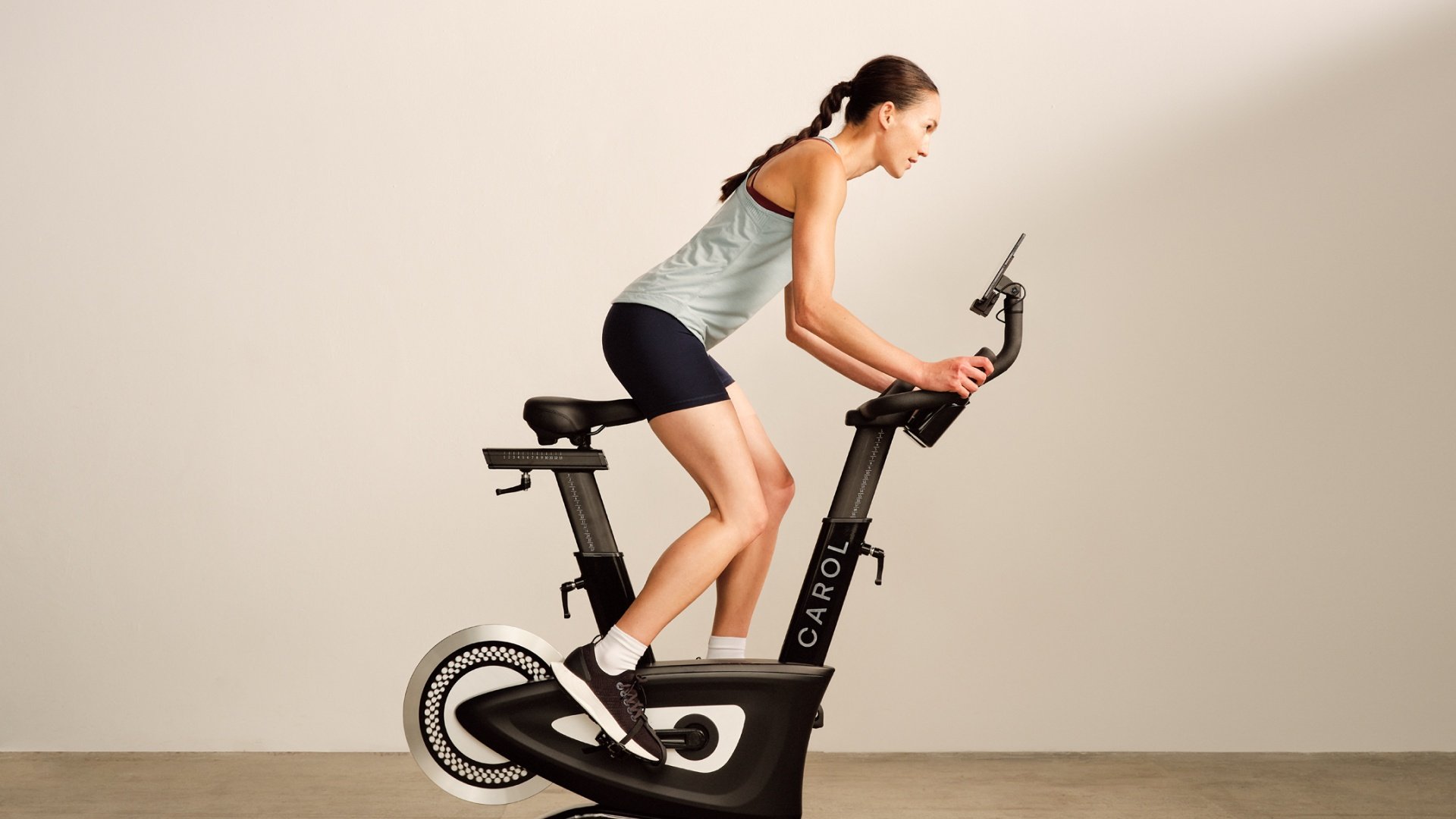
REHIT on CAROL Bike is scientifically proven to deliver superior health and fitness benefits in 90% less time than traditional cardio.
Cycling and cancer
Physical activity lowers the risk of all types of cancer, including breast cancer.
Multiple studies have demonstrated the effectiveness of cycling in preventing various types of cancer. A 2017 research conducted by the University of Glasgow revealed a 45% lower risk of cancer development among regular cyclists. Furthermore, a comprehensive review of 16 cycling-specific studies highlighted the association of commuter cycling with decreased all-cause mortality, cancer mortality, and cancer morbidity among middle-aged to elderly individuals.
Breast cancer shows a positive response to increased physical activity. An analysis of 38 studies indicates that a physically inactive woman engaging in at least 150 minutes per week of vigorous physical activity would reduce her lifetime risk of developing this condition by 9%.
Additional body fat increases estrogen and insulin levels linked to this medical condition. Cycling helps to reduce both factors.
According to the National Cancer Institute, the evidence for an association between physical activity and reduced risk of cancer is stronger for postmenopausal breast cancer. Women who increase their physical activity after menopause may have a significantly lower risk of breast cancer than women who do not.
Cycling and menstruation
Dysmenorrhea, also known as menstrual pain and cramps, affects 84% of women, with 17% experiencing severe symptoms.
Regular physical activity has been proven to reduce the intensity of these painful symptoms. Aerobic exercises, such as bike riding, stimulate the release of endorphins, which act as natural painkillers. Clinical research conducted on 70 students with primary dysmenorrhea demonstrated the positive impact of aerobic activity. The intervention group engaged in 30-minute exercise sessions, 3x a week, for 8 weeks, resulting in significant improvements in dysmenorrhea symptoms. Therefore, cycling during your period can be recommended to alleviate cramping pains.
While there are no scientific restrictions on exercise intensity during menstruation, it’s essential to listen to your body and adjust your workout plan accordingly.
Cycling and pregnancy
Women who are planning their pregnancy can increase their chances with the help of physical activity. A systematic review of the effect of exercise on ovulation revealed that it is beneficial for a woman’s fertility. Vigorous 30-60-minute daily exercise was associated with a reduced risk of anovulatory infertility. In overweight and obese women, exercise contributed to lower insulin and free androgen levels, leading to the resumption of ovulation.
When already pregnant, moderate physical activity is associated with numerous benefits, including improved fitness, decreased pregnancy ailments, and a positive influence on the course of pregnancy and delivery.
According to the American College of Obstetricians and Gynecologists (ACOG), indoor cycling is one of the safest types of exercise for pregnant women. It is a low-impact, non-weight-bearing option with a low injury rate that can boost the mother’s mood and improve blood circulation for the baby. Compared to outdoor cycling, stationary cycling eliminates the risks of falling off the bike, encountering traffic, and inhaling polluted air.
However, pregnant women should take certain precautions to avoid the negative effects of riding a bike. It is important to stay hydrated, choose a mild workout pace, and avoid overheating, as this can compromise blood circulation.
Additionally, pregnant women should consult their doctors before starting any exercise program to ensure that it is safe for both them and their child.
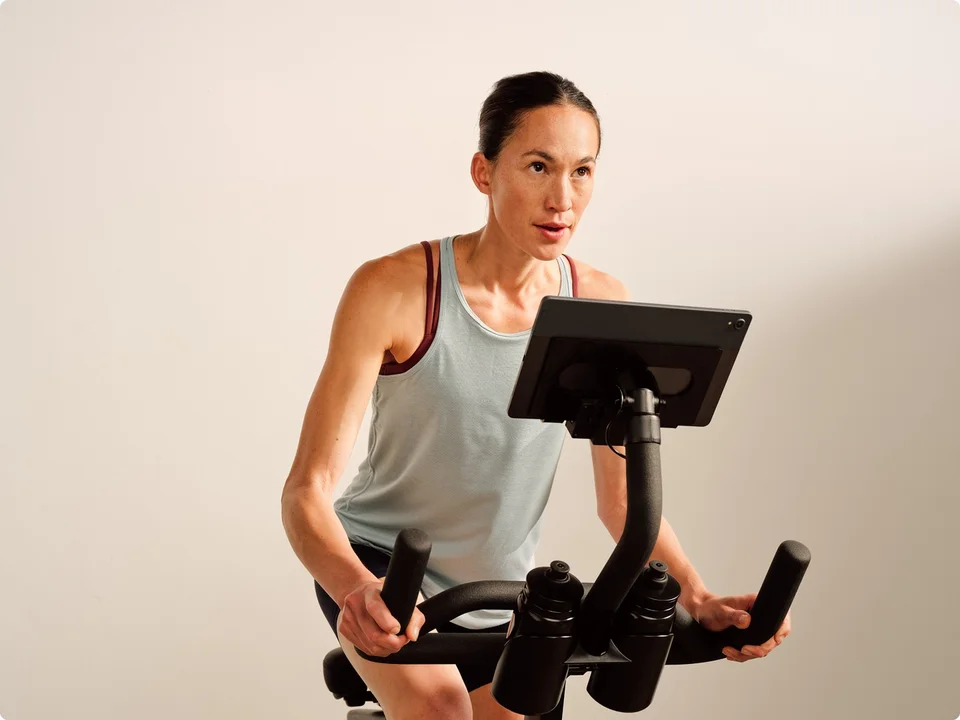
Cycling during your period can be recommended to alleviate cramping pains.
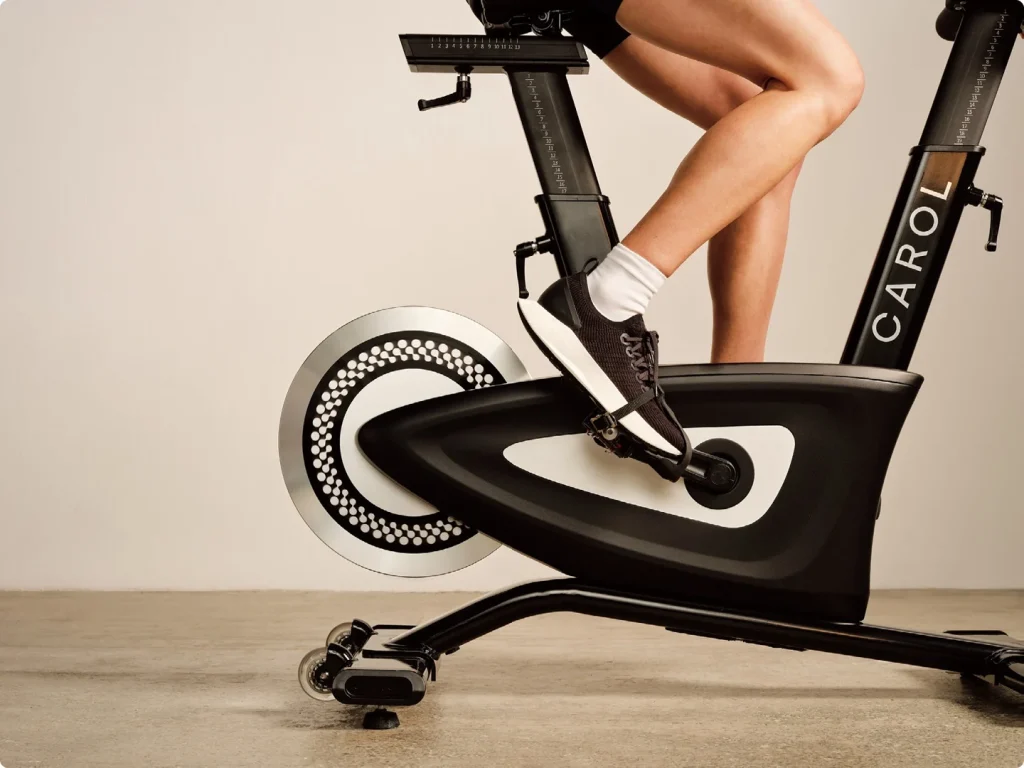
When pregnant, moderate physical activity is associated with numerous benefits, including improved fitness and a positive influence on the course of pregnancy and delivery.
Cycling and stress
Women and men exhibit distinct stress reactivity and coping mechanisms, with studies indicating higher perceived stress among women. The Mental Health Foundation reports that women are twice as likely as men to be diagnosed with anxiety.
Gender differences in stress experiences are apparent, with women often experiencing greater emotional exhaustion while men may exhibit depersonalization. Women face a higher risk of psychological issues due to a combination of biological and social factors, including hormonal influences, gender stereotypes, inequity, and social roles.
Mental health is intricately linked to women’s well-being, influenced by their hormonal system, including sex hormones like estrogen, progesterone, and testosterone. Lifestyle factors such as inadequate sleep, poor nutrition, and lack of exercise contribute to chronic stress, disrupting hormone balance and increasing the likelihood of mental health problems like depression. Thyroid imbalances, more prevalent in females over 40, can add to the stress during menopause, a period of significant hormonal changes.
Cycling regularly is an efficient way for women to combat stress and depression. This type of activity lowers cortisol levels while increasing the release of endorphins and dopamine. Research has shown that bicycle commuters cycling at least 4 days a week have a significantly lower probability of being stressed than non-bicycle commuters.
Further research suggests that cycling is efficient in lowering symptoms of depression. Individuals who performed cycling reported 21.6% fewer days of poor mental health in the past month than individuals who did not exercise.
A program encouraging cycling for older people in Australia resulted in improved quality of life, including mental health.
Side effects of cycling for females
Saddle sores
Women who spend extended periods on a bike may encounter discomfort such as saddle sores, resulting from bruised sit bones, friction-related skin irritation, or genital swelling.
To address this, reducing saddle time, adjusting the handlebar height, or opting for specialized saddles designed for females can provide greater comfort. It’s worth noting that saddle sores are more commonly associated with long-distance outdoor cycling and are relatively rare in indoor cycling settings.
Injuries
On average, cyclists experience 11 injuries per 1,000 hours in the saddle, which is far lower than for running. Injury rates for indoor cycling are generally much lower. Among the frequently cited reasons are overuse, falling from the bicycle, incorrect posture and pedaling technique, and road accidents.
However, according to Canadian research, female cyclists have significantly lower hospitalization rates than men. This may be because women make safer cycling choices, including the preference for roads with better cycling infrastructure.
This low-impact activity can be very beneficial for women’s weight management, reproductive system, and stress relief. Cycling can even ease menstrual pain and contribute to a healthy lifestyle and higher self-esteem.
Shortest, most effective workouts
If you are short on time, you can still obtain the aforementioned health benefits in just 15 minutes of regular REHIT training per week.
CAROL Bike gives women the shortest, most effective workouts—proven to deliver superior health and fitness benefits in 90% less time compared to regular cardio. CAROL’s AI-personalized workouts are easy to follow, suitable for any age and fitness level, and create the most potent training stimulus with just 2×20-second sprints. It’s a moment of effort you can always master to build a habit that lasts.
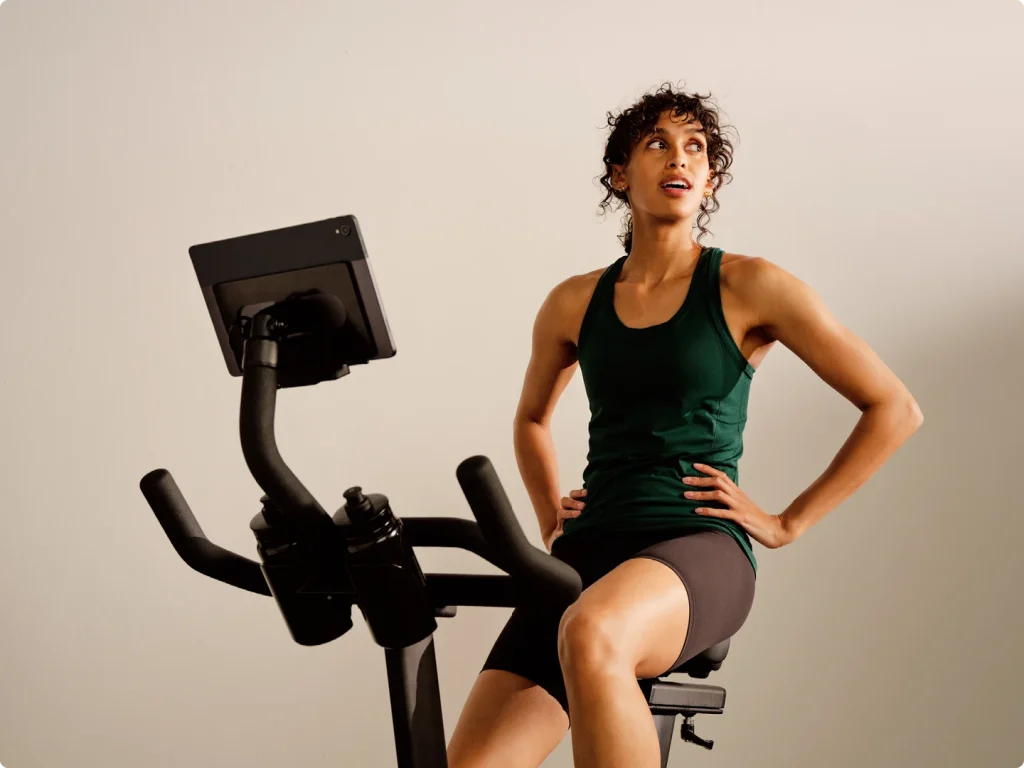
Got a question? Let's book a call.
All our experts have MSCs in Exercise Science, and they’re here to answer your questions. Whether it’s about the science behind CAROL Bike, or general fitness advice, whatever’s on your mind—we’re here for you.
